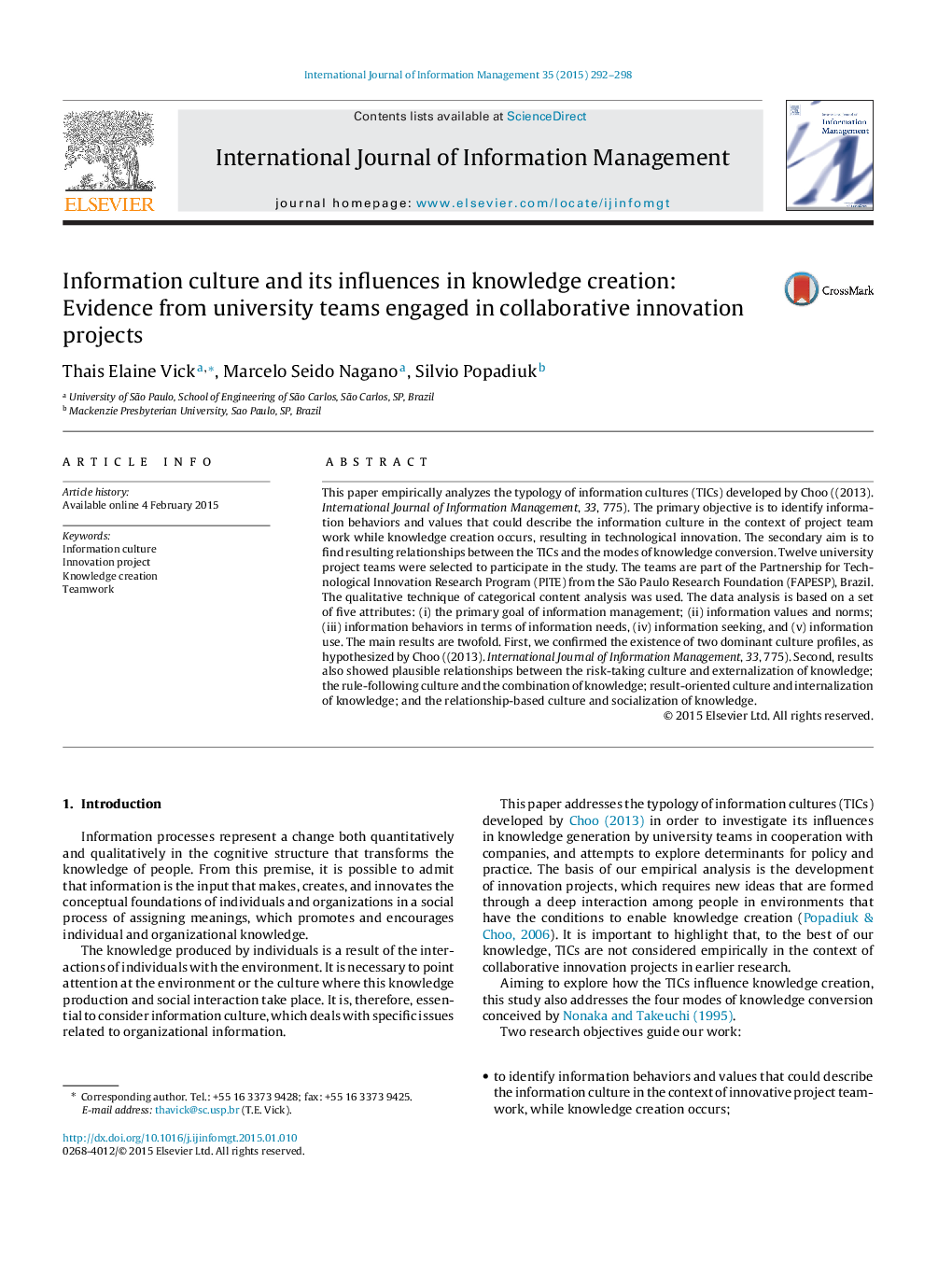| Article ID | Journal | Published Year | Pages | File Type |
|---|---|---|---|---|
| 1025581 | International Journal of Information Management | 2015 | 7 Pages |
•We confirmed the existence of two dominant information culture profiles, as hypothesized by Choo (2013).•The rule-following culture is represented by most of the teams studied. This result indicates that the information culture of the teams is influenced by the information culture of the organizations in which these teams are connected.•Teams with a higher number of members – as well as multidisciplinary teams – were identified with a relationship-based culture.•Results also showed plausible relationships between the risk-taking culture and externalization of knowledge; the rule-following culture and the combination of knowledge; result-oriented culture and internalization of knowledge; and the relationship-based culture and socialization of knowledge.
This paper empirically analyzes the typology of information cultures (TICs) developed by Choo ((2013). International Journal of Information Management, 33, 775). The primary objective is to identify information behaviors and values that could describe the information culture in the context of project team work while knowledge creation occurs, resulting in technological innovation. The secondary aim is to find resulting relationships between the TICs and the modes of knowledge conversion. Twelve university project teams were selected to participate in the study. The teams are part of the Partnership for Technological Innovation Research Program (PITE) from the São Paulo Research Foundation (FAPESP), Brazil. The qualitative technique of categorical content analysis was used. The data analysis is based on a set of five attributes: (i) the primary goal of information management; (ii) information values and norms; (iii) information behaviors in terms of information needs, (iv) information seeking, and (v) information use. The main results are twofold. First, we confirmed the existence of two dominant culture profiles, as hypothesized by Choo ((2013). International Journal of Information Management, 33, 775). Second, results also showed plausible relationships between the risk-taking culture and externalization of knowledge; the rule-following culture and the combination of knowledge; result-oriented culture and internalization of knowledge; and the relationship-based culture and socialization of knowledge.
